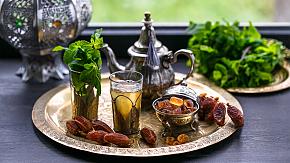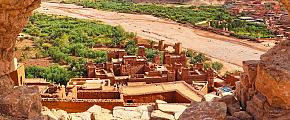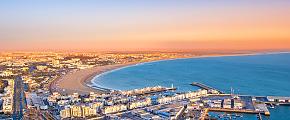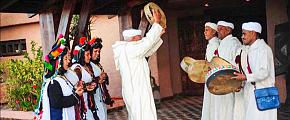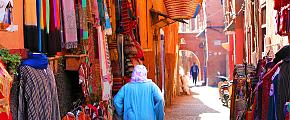Moroccan Food: A Culinary Journey to Discover the Country
As you embark on your incredible Morocco tour, your taste buds are in for an exotic adventure, too. In this food guide, join us in discovering Morocco's flavors with our list of 10 must-try authentic dishes that are sure to leave you mouthwatering.
Influenced by the culinary traditions from Arab, French, and Andalusia, Moroccan cuisine offers a unique blend of spices and flavors. Beyond dining in restaurants, you will find many ways to explore Morocco's creative tastes - whether by sharing a meal with warm-hearted locals, joining a hands-on cooking class, or taking a guided food walking tour...
The Signature Flavor of Moroccan Food
Moroccan cuisine blends diverse cultural influences, using fresh ingredients, vibrant spices, and unique cooking techniques to create richly layered flavors in every dish. It features a mix of spicy, earthy and sweet notes, with hints of acidity.
Common spices include cumin, essential in Moroccan cooking for its warm and earthy taste, along with cinnamon, turmeric, saffron, and paprika. Preserved lemons and herbs like cilantro and parsley add fresh, zesty notes, while olives are staple in Moroccan salads, tagines and side garnishes. Dried fruits like dates, figs, raisins, and apricots bring natural sweetness to tagines and couscous. Almonds, pine nuts, and walnuts are often used in pastries as garnish or filling.
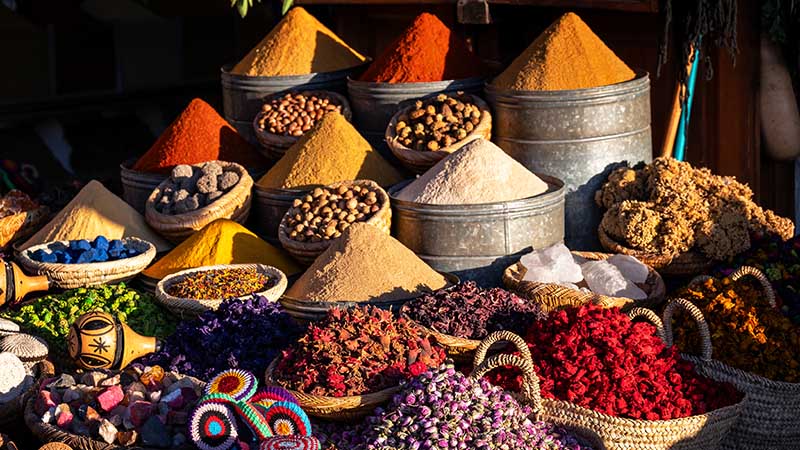 Spices in Marrakech Market
Spices in Marrakech Market
Best Moroccan Food for Travelers
Mint Tea
Moroccans humorously refer to it as "Moroccan whiskey". The mint tea is made by fresh mint leaves and sugar in green tea, delivering a fragrant blend of green tea and mint with a sweet, refreshing taste. Often served in small glass cups, it has become a cultural symbol of Morocco.
When you visit a Moroccan home, it's customary for the host to offer a cup of this tea. As one of the most beloved drinks in Morocco, it can be found just about everywhere.
Briouat
Briouat is a classic Moroccan snack - a triangular pastry that can be sweet or savory, can be served as an appetizer. The pastry is filled with various ingredients and then fried to a golden crisp. It's somewhat like a spring roll, but with bolder flavors.
Savory briouats are typically filled with minced meat, chicken, fish, or vegetables, while sweet ones are made with roasted almonds, orange blossom water, cinnamon, and sugar.
Chebakia
This is a Persian-inspired pastry, shaped like an eye and resembling a rose. It's deep-fried, soaked in honey for hours, and topped with almonds, sesame seeds, and a mix of spices - perfect for those with a sweet tooth.
During Ramadan, this treat is a staple on Moroccan tables.
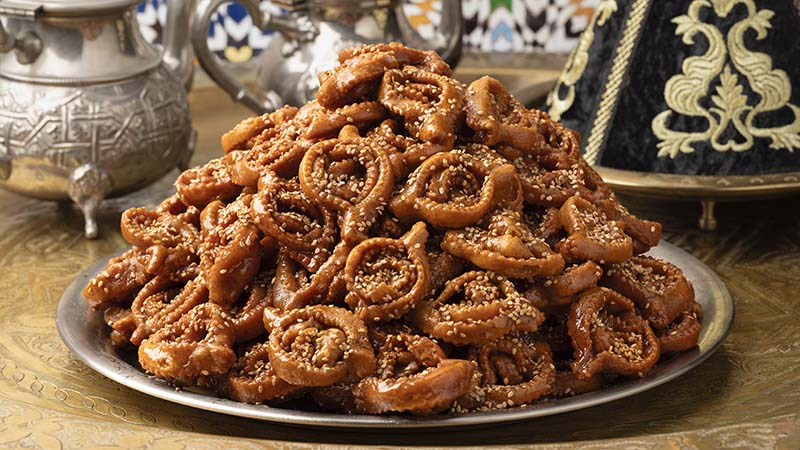 Moroccan Snack Chebakia
Moroccan Snack Chebakia
Harira Soup
Originating from the Maghreb region, Harira is one of the most cherished traditional soups in Moroccan culture. With its rich, layered flavors, this hearty soup is made from tomatoes, meat, onions, chickpeas, and lentils. It can be enjoyed as either an appetizer or a main dish, depending on the serving size, and is typically accompanied by lemon wedges (or lemon juice), Moroccan bread called khobz, figs, and a honey-rosewater pastry.
Harira is especially popular during Ramadan as part of the iftar meal, making it a beloved classic in Moroccan cuisine.
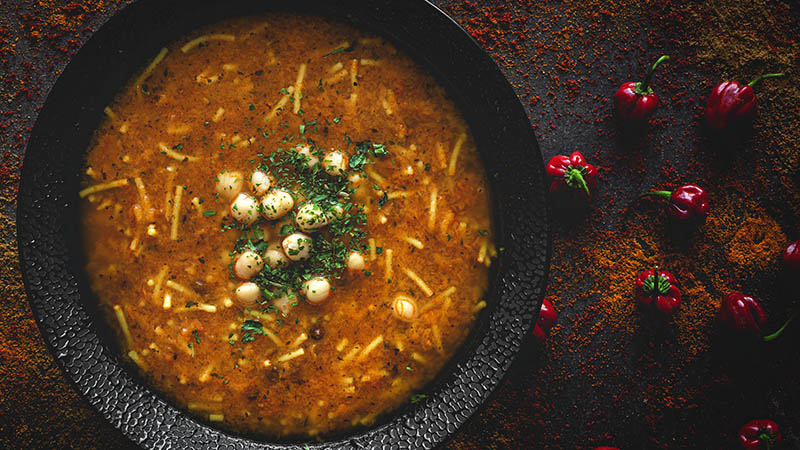 Harira Soup for Ramadan in Morocco
Harira Soup for Ramadan in Morocco
Zaalouk
In Morocco, salads come in two types: raw and cooked. Zaalouk is a classic Moroccan side dish, often considered a staple cooked salad.
Made with roasted eggplant, tomatoes, garlic, and a blend of spices, it's slowly simmered with olive oil, creating a flavorful, healthy dish. Zaalouk pairs perfectly with bread and is also enjoyed as an appetizer.
Pastilla
Pastilla is a sweet-and-savory pastry with a flaky crust and a rich, layered filling, making it a favorite dish at banquets and celebrations. It reflects Andalusian influences on Moroccan cuisine. The classic recipe, originating from Fez, uses pigeon meat, onions, and almonds for the filling, topped with powdered sugar and cinnamon - a delicate balance of salty and sweet.
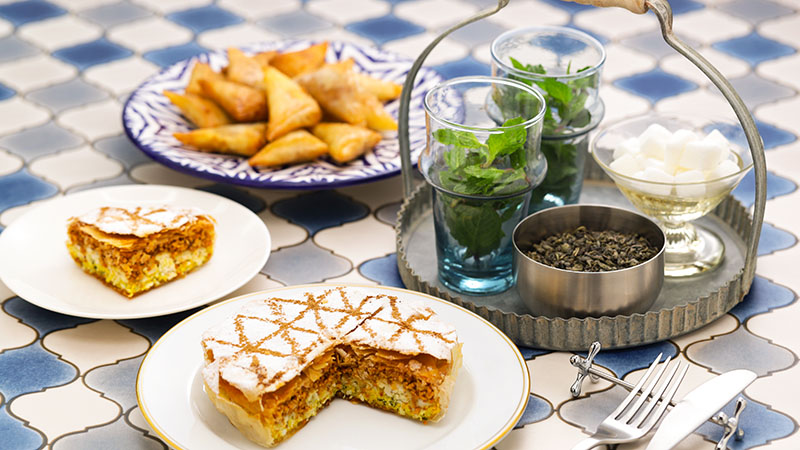 Moroccan Pastilla with Mint Tea
Moroccan Pastilla with Mint Tea
Couscous
Couscous is an essential dish across North Africa and is often called the national dish of the region. These delicate grains of wheat are usually steamed with meats (like lamb or chicken) and vegetables until golden and flavorful. Traditionally served in a pyramid shape, with vegetables arranged around the plate and a side of sauce.
Tagine
This is Morocco's famous traditional stew, slow-cooked in a clay tagine pot with spices, dried fruits, and vegetables for a rich, juicy flavor. Tagines come in endless variations, from chicken to lamb and vegetables, each with a unique taste. The classic recipe features slow-cooked chicken with green olives and preserved lemon.
 Moroccan Chicken Tagine
Moroccan Chicken Tagine
The tagine's hat-like shape is designed to capture steam and condense it back into the dish - a method ideal for the desert's scarce water resources. This conical lid allows the food to cook with minimal water, locking in its natural flavors without losing moisture.
Medfouna
Also known as Berber pizza, this dish is a culinary creation of the Berber people in the Sahara Desert. Traditionally, Medfouna was bread made with simple ingredients, baked in a fire pit set in sand or clay ovens. For many families living along the edge of the dunes, it has long served as an essential, filling meal.
Nowadays, Medfouna is made into a large, round bread stuffed with minced meat and spices, with a crispy crust and tender, flavorful filling that has a distinct smoky taste.
Brochette
One of the most common street foods in Morocco, these juicy, tender meat skewers are seasoned with a variety of spices and grilled to perfection, delivering a burst of flavor with every bite.
Influenced by Arabic cuisine, this dish is known as kebab in the Arab world, where skewered versions are called kufta. The grilled meat can be served as a main dish or wrapped in flatbread with vegetables, making a delicious shawarma.
Morocco Food Tour Tips
Moroccan cuisine varies distinctly across different regions. In Marrakech, the "Red City" is known for its refined tagine stews and brochette, with street markets offering an ideal spot to sample local flavors. Fez is celebrated for its culinary traditions and variety, especially its wide range of sweets and pastries. If fresh seafood is what you're after, Essaouira offers incredible dishes with simple cooking techniques that let the ingredients shine. Casablanca, a city blending old and new, is the perfect place to try modern Moroccan cuisine. In the Sahara, dishes reflect unique cooking methods adapted to the environment, featuring distinct spices and dried fruits.
There are ways to experience the diversity of cuisine in Morocco, you can check below for inspirations.
Dining With Locals
Eat with locals will be a unique and special activity to do in Morocco, offering an authentic insight into the importance of food rituals, etiquette, and family traditions.
Dishes like couscous are iconic in the Maghreb region and are now recognized as an intangible cultural heritage of humanity. If you're lucky enough to be invited into a Moroccan home to enjoy couscous, it's truly a one-of-a-kind experience. The Moroccan people are some of the warmest and most hospitable individuals you'll ever meet, and they will go above and beyond, often singing and dancing, to make sure you feel welcome and well taken care of.
Moroccan families usually serve a variety of traditional dishes such as tagine, couscous, and salads, with a generous serving of Moroccan mint tea. Other than savoring the delicacies, the added bonus is to learn about the ingredients, techniques, and cultural significance behind each dish. You may also have opportunity to join in the preparation to immerse yourselves in the cooking process.
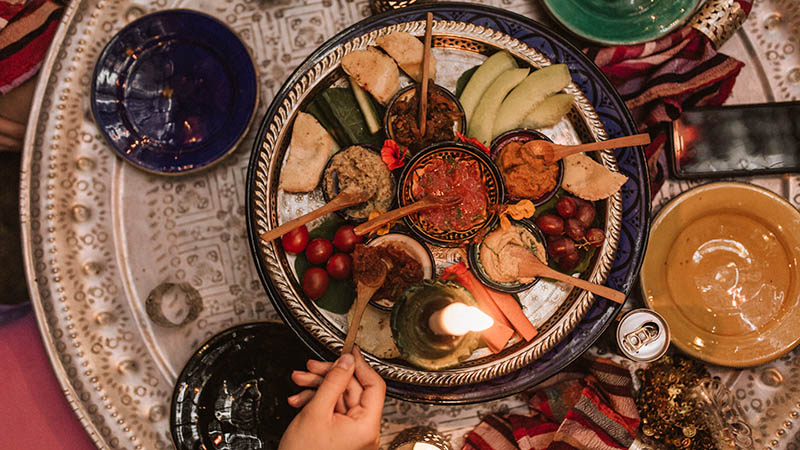 Eat with Locals in Morocco
Eat with Locals in Morocco
Cooking Classes
For many, a cooking class is a way to bring a piece of Morocco home, with recipes to recreate and memories to cherish.
In cities like Marrakech, Fez, and Essaouira, there are different kinds of cooking classes to join in. From Berber's way of cooking to modern Moroccan cuisine, there is also classes for vegetarians! These classes are typically held in local homes, culinary schools, or riads, and are led by experienced Moroccan chefs.
Often begins with a visit to a local souk (market), you will be introduced to key ingredients such as spices, herbs, and fresh produce, all integral to Moroccan cuisine. A hands-on cooking class usually involves preparing signature dishes like tagine, couscous, or Moroccan salads, under the guidance of the instructor. Apart from cooking techniques, you will also gain a deeper understanding of the communal nature of Moroccan meals and the role food plays in Moroccan life.
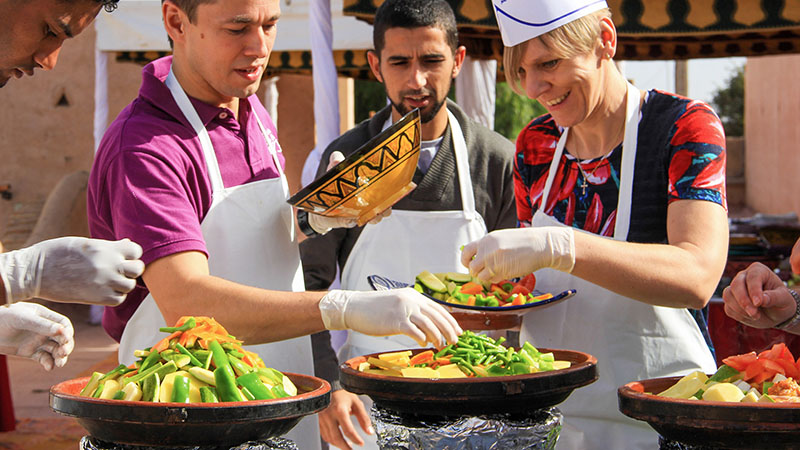 Cooking Class in Morocco
Cooking Class in Morocco
Guided Food Walking Tour
Guided food walking tours are a popular way to experience the diverse culinary landscape of Morocco while exploring its vibrant streets. They are also a fantastic option for those looking to explore the cities on foot while savoring authentic Moroccan bites.
These tours typically take place in cities like Marrakech, Fez, or Essaouira, where you can visit bustling souks, street markets, and local eateries. In Marrakech, there are even famous street food tours in the night! You will have chance to engage with the local food scene, interact with Moroccan vendors, and discover new flavors in an immersive, fun environment.
Led by knowledgeable local guides or foodies, food walking tours introduce you to Morocco's rich food heritage by stopping at iconic food stalls, cafes, and hidden gems where tourists might not usually venture. Along the way, you can sample an array of Moroccan street foods such as fresh mint tea, spicy brochettes (grilled meat skewers), and sweet pastries like baklava. You will also be shared with the history behind each dish, its cultural significance, and its regional variations.
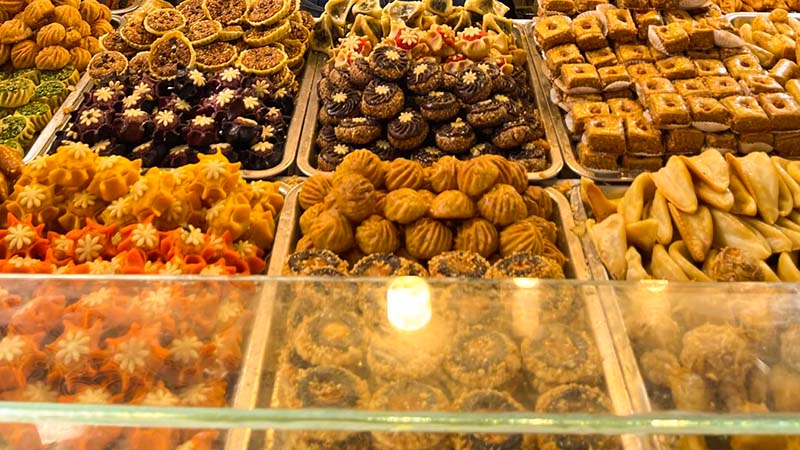 Morocco Street Food
Morocco Street Food
Plan Your Moroccan Food Adventure With Odynovo
Tasting Moroccan food is not just a treat for your taste buds, and also a way to experience the country's unique and diverse culture. If you're planning a trip to Morocco, reach out to us via [email protected], we'll help you create a tailored culinary journey. Moroccan food and the warm hospitality of its people will make you want to return again and again.
Related Posts You May Like
What Our Clients Say
Explore the latest verified reviews of Odynovo's travel services on Tripadvisor, Google, Trustpilot, Product Review and more trusted platforms.

